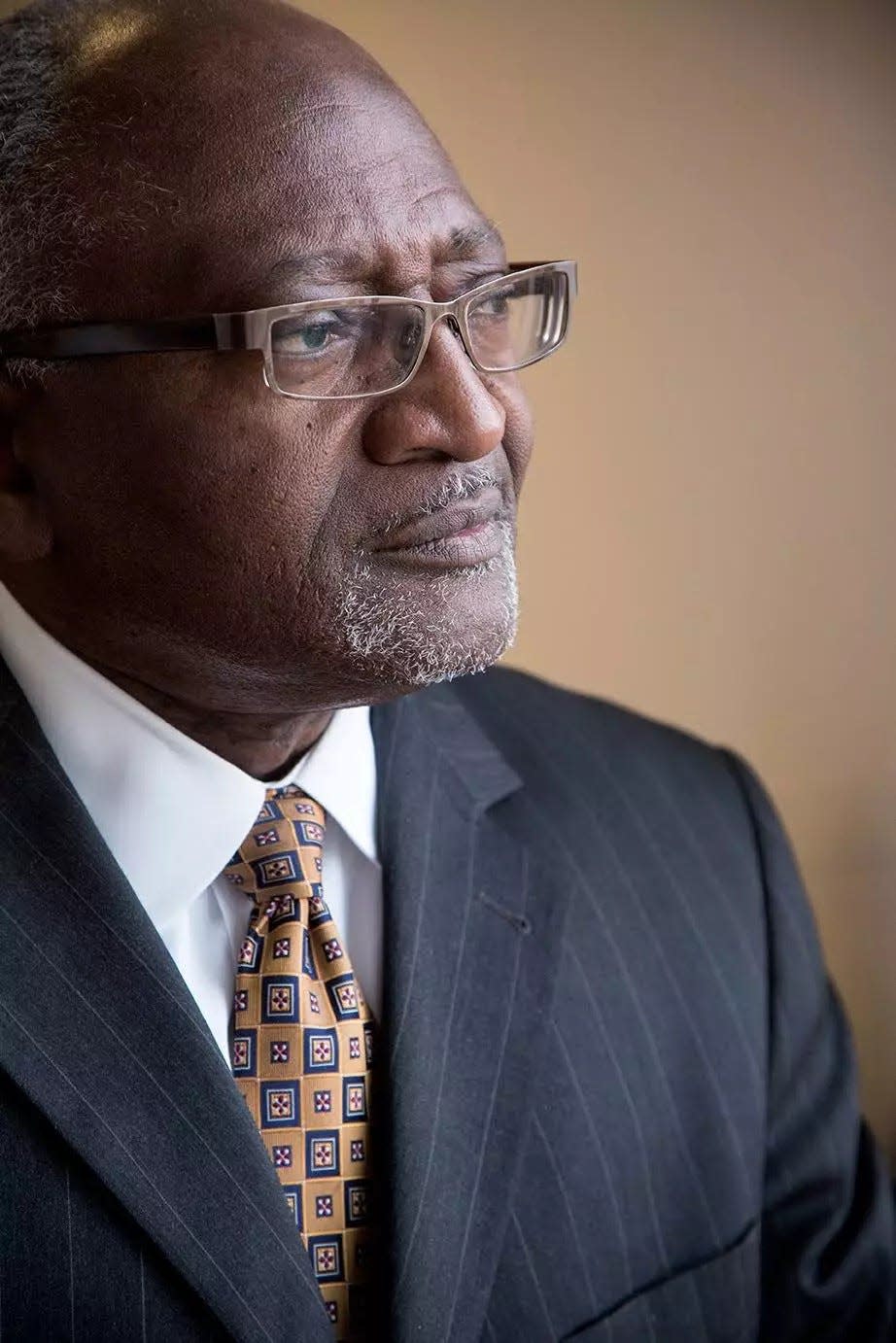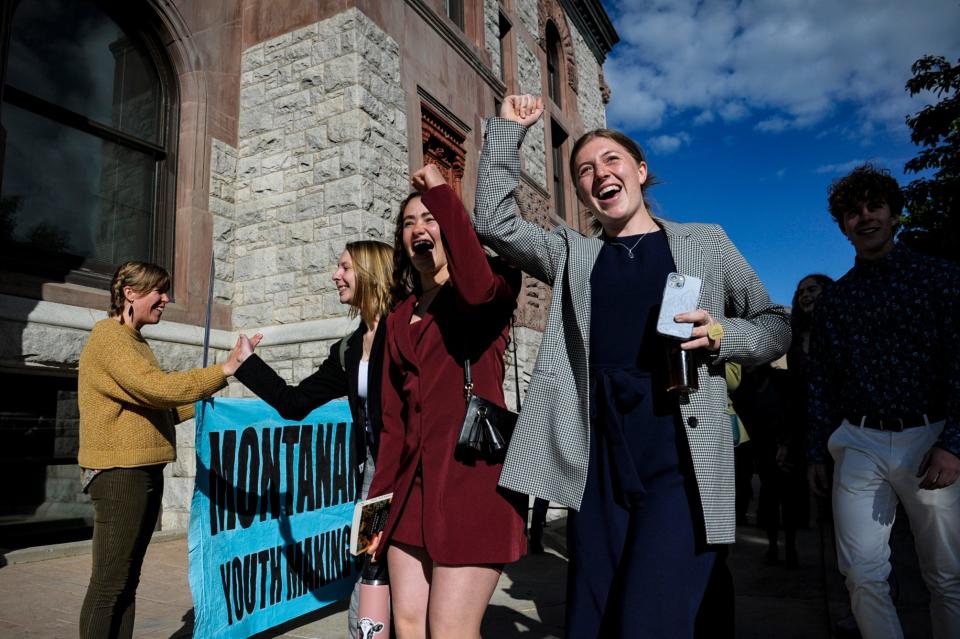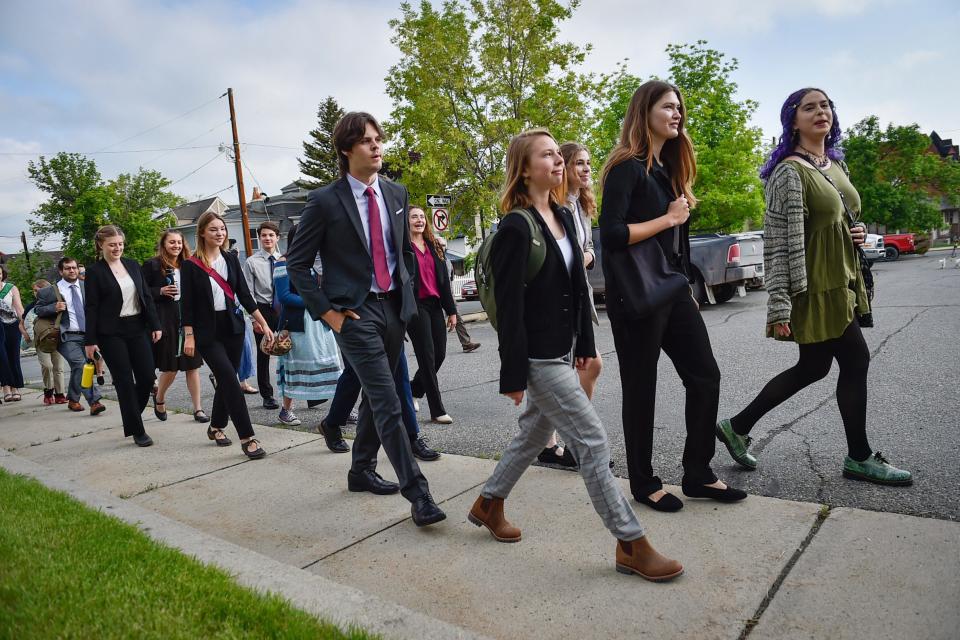Should governments be blamed for climate change? How one lawsuit could change US policies
A landmark ruling saying Montana has a constitutional duty to guard residents from the harmful effects of climate change could have wider implications, environmental experts said.
In a decision Monday lauded by activists as a potential turning point for the environmental movement, District Court Judge Kathy Seeley sided with young plaintiffs who claimed state policies used to evaluate requests for fossil-fuel projects are unconstitutional because they don't allow for agencies to consider the effects of greenhouse gas emissions – a practice she said had detrimental effects on the environment and the mental and physical health of young people in Montana.
The case marks the first time a U.S. court has held a government liable for disregarding the harmful effects of climate change and thereby violating its children's constitutional rights, according to a statement from Julia Olsen, chief legal counsel and executive director for Our Children's Trust, an Oregon environmental group that has filed similar lawsuits in every state over the past 12 years.
Nate Bellinger, who also represented the plaintiffs, called the ruling "historic."
“It’s the first-ever ruling of its kind in our nation’s nearly 250-year history. So it’s big, and it’s great.”
Environmental activist Maya van Rossum, founder of the Green Amendment movement, said the decision marks the first time a constitutional right to a clean and healthful environment has been determined to include the right to a safe climate.
"The oil and gas industry, and their friends in Montana's government, are now on notice that the people of Montana have the higher power of the Constitution to help them ensure protection of their climate," van Rossum said in a statement.
Robert Bullard, known as the father of the environmental justice movement, hailed the ruling in Held v. Montana as "a breath of fresh air."
"This ruling is really bigger than Montana," said Bullard, founding director of the Bullard Center for Environmental and Climate Justice and professor of urban planning and environmental policy at Texas Southern University in Houston. "Hopefully it will have a ripple effect across the country in getting more rulings that will somehow mirror reality."

He said it was important that young people had been behind the case, calling the 16 plaintiffs, ages 5 to 22, "brave and courageous."
"They recognize that we can’t continue to do damage to the planet and keep ruining this earth," Bullard said.
Montana climate case is about environmental responsibility
Patrick Christie, a professor of marine and environmental affairs at the University of Washington in Seattle, called Seeley's decision "a precedent-setting ruling that with have impacts throughout the U.S. and beyond."
"This ruling makes it clear that stonewalling and ignoring the best available science is no longer tenable," Christie said.
He said safe, reliable and economically viable energy alternatives are available to Montana and other states looking for more environmentally friendly sources.
"The least that can be done in the midst of this climate crisis is to recognize, mitigate and then reverse the harm done by our over-reliance on fossil fuels," Christie said. "The minimum society can do is to take seriously the concerns of youth and the needs of future generations who are not responsible for this climate crisis, but who carry the greatest burden of climate change."
Montana has never denied a permit for a fossil fuel project, and its Legislature recently passed laws favoring oil, gas and coal over renewable energy. In the three years since the lawsuit was filed, the scope of the case narrowed to consider whether Montana’s Environmental Policy Act − which requires state agencies to weigh environmental health against resource development − is unconstitutional because it doesn't require officials to consider greenhouse gas emissions or their effects on the climate.
Oday Salim, director of the environmental law and sustainability clinic at the University of Michigan Law School, said the judge’s ruling means other state legislatures will have to proceed with caution.
“The state Legislature (in Montana) went out of its way to single out climate change and to punish the public for doing anything about it,” Salim said. “They enacted provisions that said you cannot raise arguments about climate change and greenhouse gas emissions when making a complaint.”
The right to a clean and healthful environment has been enshrined in Montana’s Constitution since 1972. The state is among the major sources of coal in the United States accounting for about 5% of the nation’s coal production.
“Now, you have an example of a state court judge saying people have the right to a healthy climate and that you can’t take away legal pathways based on achieving that,” Salim said. “That’s really significant and we haven’t seen that in other state courts.”

Bellinger said the ruling affirmed not only the need to reduce greenhouse gas emissions but also the availability of renewable resources as an alternative.
“Those are things we’ve been talking about in the climate sphere for a long time, but it’s the first time a judge has included these in a legally binding court order,” Bellinger said. “So to have those findings of fact, that this harms the plaintiffs and that you have government conduct that is exacerbating those harms is really significant – and applicable beyond Montana.”
Young people say fossil fuels are hurting their future
Attorneys for the plaintiffs argued that the state’s pro-fossil fuel policies endangered their health and livelihoods and threatened future generations and presented evidence showing rising carbon dioxide emissions were pushing temperatures upward, exacerbating drought and wildfires and reducing snowpack.
Montana’s policies to promote and perpetuate fossil fuels, they said, violated residents’ fundamental rights to a stable climate system. They argued that the state should no longer permit new fossil fuel projects and should instead shift toward available renewable energies.

The state had maintained that the role of its greenhouse gas emissions in global climate change was negligible and shouldn’t be held accountable.
That the judge had rejected that defense was important, Bellinger said, because he expects states to employ such arguments in similar cases.
“This is a really important precedent that says each state does have an obligation to reduce emissions and that those individual actors are collectively causing climate change,” he said.
Will similar climate change lawsuits be successful?
While Montana officials say they will appeal the case, Bellinger said, the state Supreme Court will have to review the evidence and testimony presented. The state’s defense, he said, was surprisingly abrupt, consisting of one expert on the stand “for about 10 minutes” and two state employees.
“The state had zero evidence contradicting our expert testimony,” he said. “There really isn’t another side to the story here. The overwhelming evidence supports the decision we got and makes clear that fossil fuels are harming young people and degrading the environment, and that there are alternatives.”

Environmental advocates said the case had laid possible groundwork for similar cases in other states.
“This court has done a lot of the hard work already,” Salim said. “While it’s not binding precedent, it’s literally a blueprint. Other courts can look at that and decide what they can borrow for themselves.”
Bellinger said his organization’s strategy is unique in that it targets the government’s role in the climate crisis as opposed to, say, fossil fuel companies.
“Governments are issuing permits for everything the fossil fuel companies do,” he said. “This decision really affirms that governments do have an important role when it comes to permitting activities and should not be doing so when they harm plaintiffs and violate constitutional rights. That’s the blueprint we will continue to pursue.”
Contributing: The Associated Press
This article originally appeared on USA TODAY: Could the Montana youth climate case help stop global warming?

